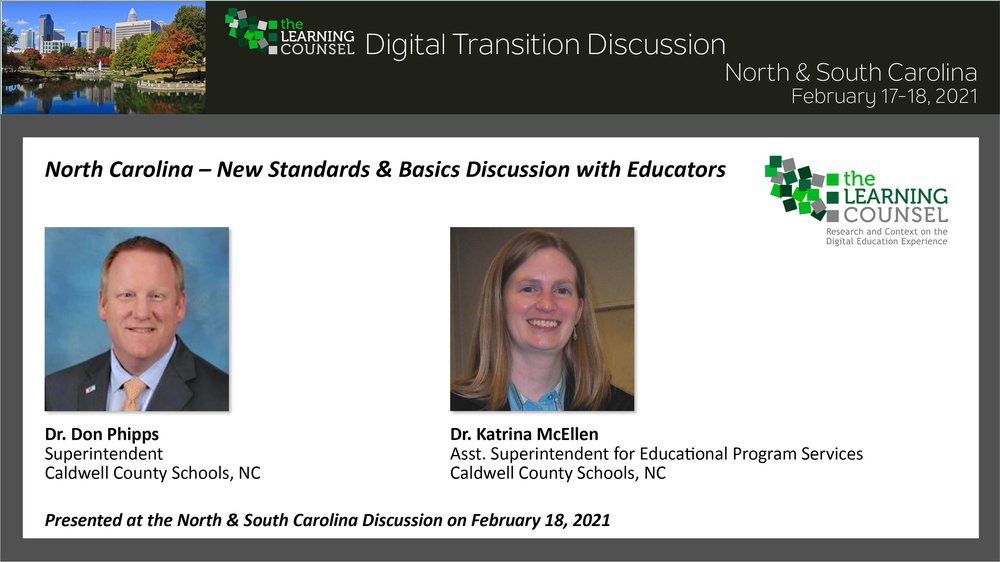“Educating during a pandemic,” you’ll hear from Dr. Don Phipps, Superintendent at Caldwell County Schools and Dr. Katrina McEllen, Assistant Superintendent for Educational Program Services at Caldwell County Schools. According to Dr. Phipps, “In many cases, we had individuals who were not parents who were caregivers for a child during the school day and had taken on the role as a teacher or a teacher assistant, and then may or may not have been prepared to do that. The communication piece was critical. So, we had to work through that. We have limited resources at the time we were not a one-to-one school system. We were working on devices in our building, and we had them in labs and computer areas. But we didn't have a device for every child that they took home. When this is over and the dust settles, we will have one device per child, and we'll be looking at what our implementation plan would be for technology. So, we've grown in that particular area. We distributed devices without a real plan because students weren't coming back and we needed to make sure that we had some form of contact with them”
“We started to really be aware that the non-academic needs were bubbling to the top and were something that we had to take care of. And these were the social and emotional needs. For a long time, I have said that mental health needs are probably the greatest need that we deal with in the school system. This became very evident to us early on, as we went through this.” There were so many lessons learned as Caldwell County Schools went through the pandemic, and these lessons are freely shared by Dr. Phipps and Dr. McEllen. This wisdom, now crafted into the CCS Response, is sure to help you back home in your own school or district. There is a good bit to share here, so get ready for some furious notetaking. It’s valuable stuff, and you’ll want to take home every bit.











